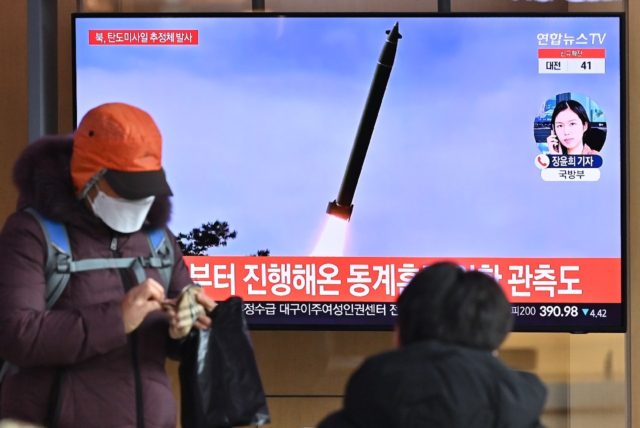Takeoffs at some western US airports were temporarily halted after North Korea test-launched a ballistic missile, the Federal Aviation Administration said Tuesday.
“As a matter of precaution, the FAA temporarily paused departures at some airports along the West Coast on Monday evening,” the FAA said in a statement about the rare action.
“Full operations resumed in less than 15 minutes. The FAA regularly takes precautionary measures,” it said.
The agency, which governs commercial and private aviation, did not directly link the shutdown to the North Korean missile, and the US military said it had not ordered the action.
But when asked about the North Korean launch and the airports, White House Spokesperson Jen Psaki replied: “I believe it was a 15 minute groundstop and they did it out of an abundance of caution.”
The FAA is “going to be assessing their approach moving forward,” she said.
The shutdown appeared to have been ordered just minutes after the launch, which took place at around 2227 GMT Monday, or 2:27 pm on the west coast Pacific Standard Time.
The second test launch in a week by nuclear-armed North Korea is believed to have been a short-range ballistic missile that plunged into the sea east of the Korean peninsula after flying 700 kilometers (435 miles), according to South Korea’s Joint Chiefs of Staff.
The missile reached an altitude of 60 kilometers (37 miles) and a speed of Mach 10, or ten times the speed of sound.
Public reports on social media showed that planes preparing for takeoff were told to halt in place at several western US airports before the order was rescinded.
In a recording posted online, a Burbank air traffic controller is heard telling a pilot to land because “some sort of national security stuff is going on.”
Washington Times reporter Bill Gertz said in a tweet that his flight in Reno, Nevada, just east of the border of northern California, was also held on the ground for about 20 minutes.
It is not clear exactly how the alert was triggered. A spokesman for the Pentagon’s North American Aerospace Defense Command (Norad) said it did not issue an alert after the launch. US intelligence can detect such events immediately with satellites monitoring the region.
“Certainly from our part, the missile launch would have been detected and assessed as no threat to Canada or the United States, and therefore no warning was issued,” the Norad spokesman said.
The United States has elevated its defense readiness ever since Pyongyang demonstrated in tests in 2017 that it had potentially intercontinental ballistic missiles capable of hitting the continental United States.
On January 13, 2018, Hawaii went on full alert for a possible nuclear ballistic missile attack, with residents told to seek immediate shelter, after an erroneous emergency warning went out and sparked panic across the state.

COMMENTS
Please let us know if you're having issues with commenting.